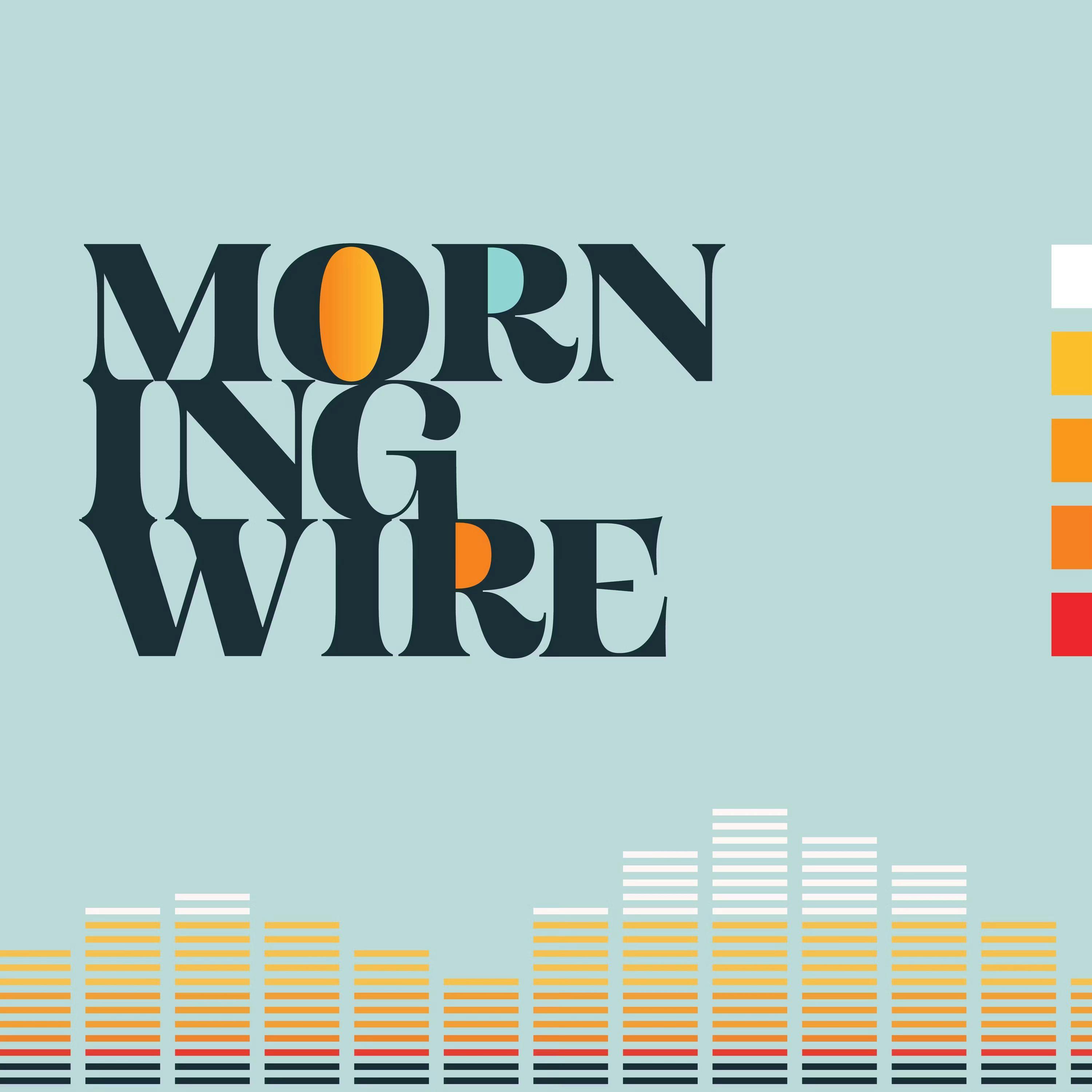Executive Orders Halted: Are Judges Overstepping? | 3.23.25
Press play and read along
Transcript
Speaker 1 Over the last few weeks, we've seen several district judges put a halt to some of President Trump's executive orders, including his dismantling of USAID, his firing of thousands of government workers, and his ban on people who identify as transgender from serving in the military.
Speaker 1 Do these judges have this authority, or is this judicial overreach?
Speaker 2 In this episode, we speak with the Manhattan Institute's Ilya Shapiro about the Trump administration's multi-front battles with the courts.
Speaker 2 I'm Daily Wire editor-in-chief John Bickley with Georgia Howe. It's Sunday, March 23rd, and this is a weekend edition of Morning Wire.
Speaker 2 Joining us now to discuss the Trump team's legal battles is Ilya Shapiro, Director of Constitutional Studies at the Manhattan Institute and the author of the book, Lawless, The Miseducation of America's Elites.
Speaker 2 Ilya, thank you so much for coming on.
Speaker 3 Sure, my pleasure.
Speaker 2 Now, we've seen a flood of judges' orders blocking the Trump administration's various attempts to enact his agenda on things like dismantling USAID, firing thousands of workers, banning trans-identifying people from the military.
Speaker 2 First, do these judges have the authority to impede the executive branch?
Speaker 3 It depends.
Speaker 3 I mean, I'm sorry to can't generalize more than that, but the facts of the case and the specific legal authorities are different as between Doge cutting funding versus the president putting in new personnel policies for the military.
Speaker 3 But in general, what we've seen is a lot of judicial resistance, if you will, to the administration's actions.
Speaker 3 In fact, there have been more TROs, temporary restraining orders, and preliminary injunctions in these first eight weeks or two months of the Trump administration than we saw in all four years of President Biden.
Speaker 3 So I'm sure there are edge cases where the Justice Department or other administration lawyers are pushing through the envelope, not just pushing the envelope.
Speaker 3 But in a lot of these cases, I think there is overreach, which doesn't mean that it's improper to go to court if you want to challenge something, but some of these rulings, and particularly issuing TROs, which are supposed to be unreviewable on appeal, which is why the Supreme Court has had to get involved a couple of times, really are exceptional, let's say.
Speaker 2 I'd like to get into some of those specific cases in a second, but before that, another kind of broad question.
Speaker 2 If you were advising the president, how would you counsel him on structuring future EOs to better protect them from legal challenges?
Speaker 3
Well, the executive orders have been very well lawyered. I mean, I was very pleasantly surprised.
I was expecting an onslaught, but it even exceeded my expectations.
Speaker 3 How well the administration and its lawyers, the transition team, used that period, the lame duck period, to prepare this stuff.
Speaker 3 And so ultimately, most of this, the administration is going to prevail, whether it's DEI or the energy drilling or these things that we've already mentioned, they're on pretty solid ground.
Speaker 3 And so we're kind of arguing
Speaker 3 around the edges of whether that plane full of Venezuelan gang members had already left American territorial waters and whether that's legally significant, things like that.
Speaker 3 That's really where the real debate is. It isn't in the heart of the substance of executive power to affect the executive branch.
Speaker 2
Got it. Now, one more general question.
Florida Governor Ron DeSantis has suggested that Congress strip these federal courts of their jurisdiction. Is that truly an option on the table?
Speaker 3 Well, it's hard to see anything of substance or of controversy passing a filibuster in the Senate. So practically, it's dead in the water.
Speaker 3 I would like to see, for example, a three-judge court necessary to issue a universal or national injunction or something like that, because it really is unseemly to have one judge or a handful of judges in places like Boston and D.C.
Speaker 3 and Seattle that are selected to be on the far left edge of the judiciary more broadly, controlling all of federal policy.
Speaker 2
That's an intriguing suggestion. Let's go case by case now.
Trump's actions against USAID. We've had legal pushback to that.
Where does that case stand?
Speaker 2 Do you think that the Trump administration is ultimately going to win in terms of their cost-cutting measures there?
Speaker 3 Well, the one case that already made it to the Supreme Court, not on full briefing, I mean, this is all emergency stuff happening overnight and things like that, was on the order.
Speaker 3
It was kind of a breathless order to require the government to pay millions and millions of dollars for USAID programs. And the appellate court stayed that.
Then the Supreme Court got involved.
Speaker 3 And the media narrative is that the administration lost at the court 5-4.
Speaker 3 But really what the justices did was told the lower court to be more specific and narrow, which is what ended up happening.
Speaker 3 So the district judge, again, Judge Ali on the district of D.C., said, okay, you do have to pay for the work that was already done under valid contracts, which is different than the previous order, which seemed to say that you can't cancel future work or future contracts.
Speaker 3 So already that is effectively a win for the administration.
Speaker 2 How about deporting the illegals who the administration says are criminals and gang members? Where does that battle stand?
Speaker 3 Well, the invocation of the Elliot Enemies Act is a rarity in peacetime, not under wartime situations, but it doesn't mean that that's not the law on the books.
Speaker 3 And this is the argument over whether the administration's lawyers were in contempt by not forcing the plane to turn around.
Speaker 3 And they are pushing an aggressive, but not facially ridiculous or implausible or contemptuous evaluation of the law, meaning that the binding law is the order that the judge made in writing, what's called a minute order, not what he may or may not have said in court.
Speaker 3 And the minute order, but again, there's lots of citations that they present and explaining that the minute order did not require the plane to turn around or anything like that.
Speaker 3 It was affecting planes planes that hadn't left yet.
Speaker 3 So they are pursuing arguments that are perfectly valid and maybe, you know, the judge or on appeal, the law might get changed, but they are not saying, as has been misreported, that the administration is simply ignoring the court order or slow walking it or the lawyers didn't tell their political bosses what the judge said, anything like that.
Speaker 3 It's simply a debate between Article 2 and Article 3 about the president exercising his authority over national security and migration rules.
Speaker 2 And what about the order to reinstate 25,000 fired federal workers? Do you think that's going to hold up?
Speaker 3 There are civil service protections, and it's unclear.
Speaker 3 I haven't drilled down in this particular case about whether those were followed and there's different rules for those on probationary periods versus more veteran workers.
Speaker 3 In theory, there are ways to have a reduction in force.
Speaker 3 It's not just a one-way ratchet and the government can never lay someone off unless they, you know, commit fraud or engage in malfeasance of some kind.
Speaker 3 But I just don't know whether they crossed all the T's and dotted the I's.
Speaker 3 What I do know is that in the case that has also made it to the Supreme Court on one of these emergency appeals, ultimately the lower courts ruled that the president can fire the head of the Office of Special Counsel.
Speaker 3 And that kind of ruling might affect these other lawsuits regarding members of the National Labor Relations Board, Federal Election Commission.
Speaker 3 Just today, he fired two members of the Federal Trade Commission. So those kind of high-level heads of departments, heads of agencies, it looks like the administration is on firm ground.
Speaker 2
Got it. Now, the ban on transgender identifying service members in the military, again, there's been legal pushback to that.
Where do you think that's going to land in the end?
Speaker 3 Generally, courts give a lot of leeway to the executive branch on regulating the military.
Speaker 3 And the executive order said that people questioning their gender identity affects negatively the operations of the military, the ability to go to war. It's a kind of bread and butter goals.
Speaker 3 If judges accept that explanation on appeal, which I think is more likely than not, then the lower court's block will be reversed. But that's where this lies.
Speaker 3 Is it a plausible explanation or is it just irrational or bigoted action against people?
Speaker 2 Yeah.
Speaker 2 Final question, broadening out again, do you believe most of these cases will end up escalating to the Supreme Court?
Speaker 3 I think the court doesn't like having to intervene so often, and that's all of the justices all over the political spectrum, however cautious they might be, what have you.
Speaker 3 And so far, they've been unsuccessful in preventing the lower courts from issuing orders that are going to instantly be appealed and get back on the Supreme Court's doorstep.
Speaker 3 So I think the justices are really in a bind now.
Speaker 3 Are going to have to issue some guidance in one of these cases about universal injunctions, about temporary restraining orders, all of this procedural stuff, because that's where the skirmishing has been when it gets to the Supreme Court.
Speaker 3 The Supreme Court has not actually decided the merits of any of these thorny issues.
Speaker 3 what we're seeing is a battle over what's known as unitary executive theory which isn't so much about the scope of executive power you know how much power the executive has but about who controls it and so the the trump administration is really pushing the the claim that the president as the head of the executive branch gets to control what it does.
Speaker 3 You know, he's not trying to invalidate congressional legislation or rewrite it.
Speaker 3 He's not trying to ignore judicial rulings, but he's saying, look, whether it's the military, whether it's reorganizing government, shifting USAID functions into the State Department or shifting Education Department functions to the Treasury, what have you, presidents should have leeway over that.
Speaker 3 And we could see if push comes to shove at the Supreme Court on the merits, as with the issue of appointing heads of so-called independent agencies, I think if the opposition to Trump continues to push these kinds of cases, the Supreme Court is more likely than not to uphold the Trump administration's push for a more unitary executive.
Speaker 2 Got it. Ilya, thank you so much for joining us.
Speaker 3
My pleasure. My pleasure.
Take care.
Speaker 2 That was the Manhattan Institute's Ilya Shapiro, author of Lawless, The Miseducation of America's Elites. And this has been a weekend edition of Morning Wire.

